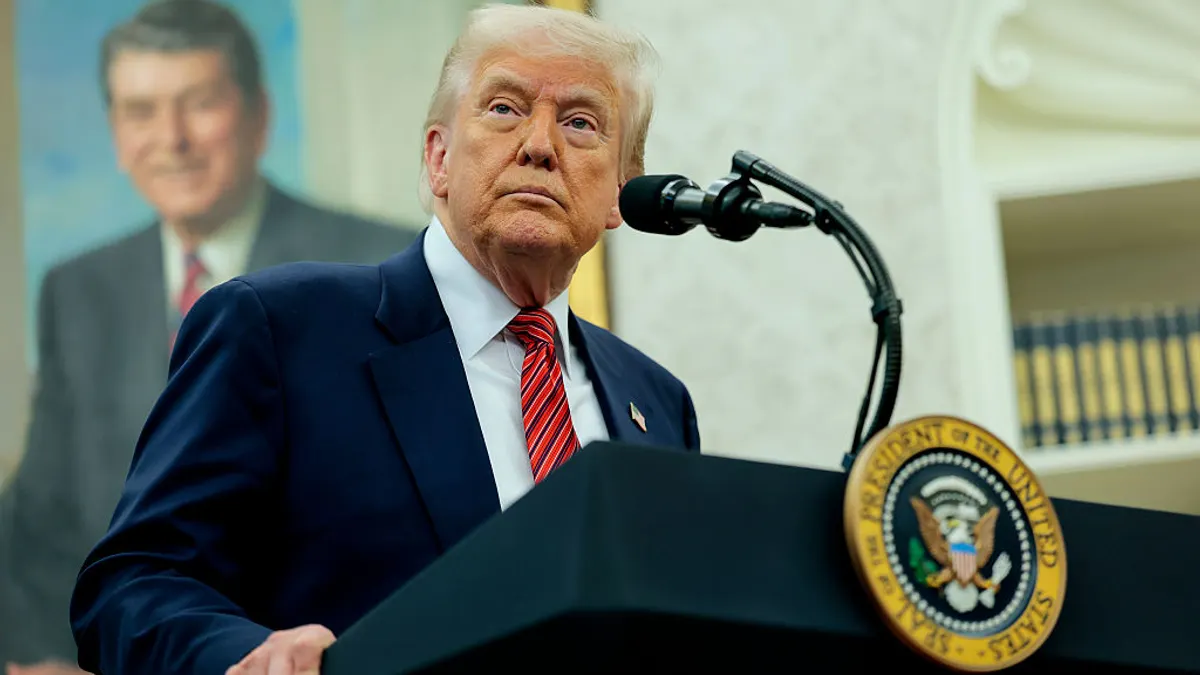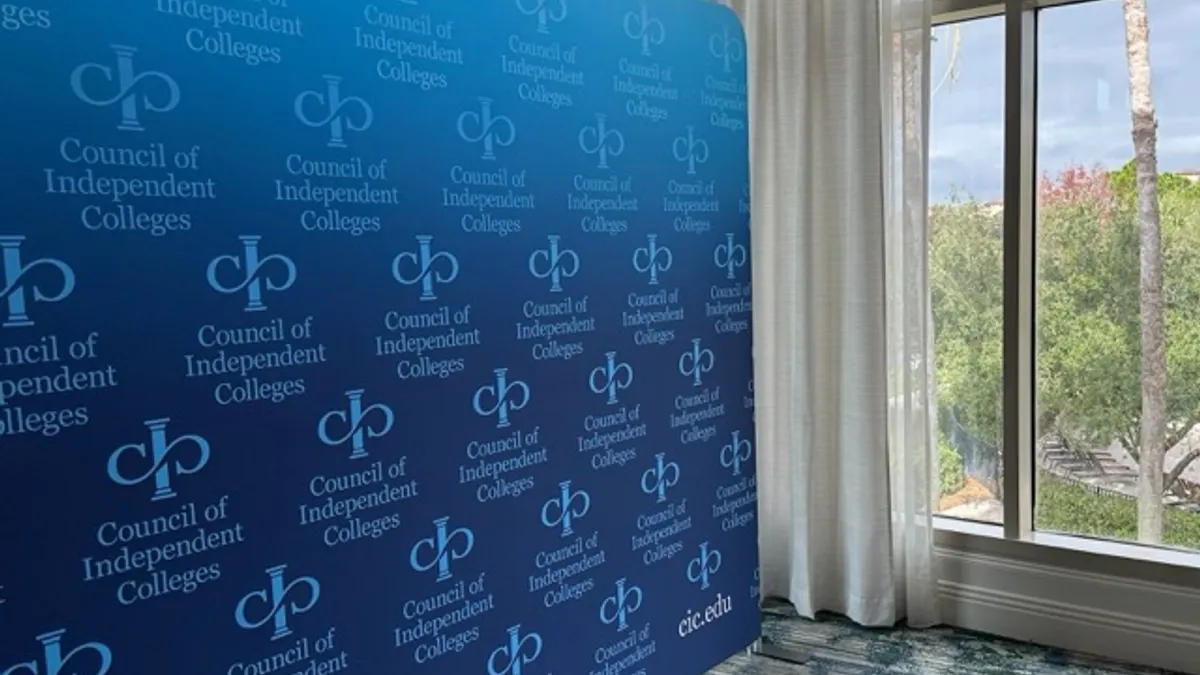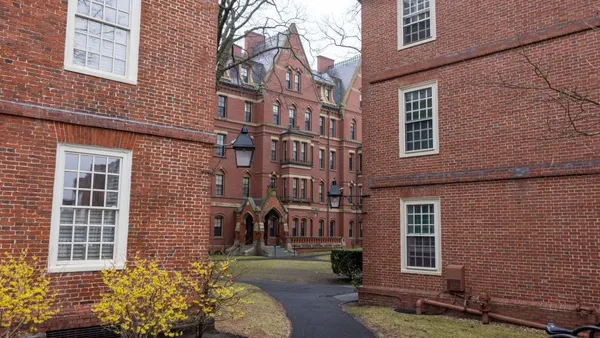Dive Brief:
- More than half of Americans, 56%, disapprove of how President Donald Trump is handling issues related to colleges, according to a new poll from the Associated Press and NORC at the University of Chicago.
- However, opinions varied dramatically depending on political affiliation. A strong majority of Democrats, 90%, disapprove of Trump's response to college issues, while 67% of Independents said the same.
- But among Republicans, 83% approve of the president's approach, highlighting the stark political divide in how Americans believe higher education policy should be managed.
Dive Insight:
Trump has repeatedly criticized the higher education sector and has used much of his nascent second term to attempt to exert control over it.
For instance, the National Institutes of Health, the U.S. Department of Energy and National Science Foundation have moved to cap reimbursement rates for indirect research costs at 15%, though all three agencies have faced legal challenges.
Federal departments have also cut hundreds of millions in grant funding from colleges. In a little over a month, NIH cut $1.8 billion in grants, hitting minority health research the hardest, according to findings published in JAMA.
Amid this fast-changing policy landscape, AP-NORC researchers interviewed 1,175 adults from May 1 to 5. Their responses offer insight into how the public views higher education and Trump's actions in the sector.
Overall, 62% of adults support maintaining the level of federal funding colleges receive for medical and scientific research, the poll found. And support was largely bipartisan, with 75% of Democrats and 57% of Republicans in favor.
The Trump administration has also attempted to exert influence over Harvard and Columbia universities by demanding they complete unprecedented to-do lists — such as eliminating diversity initiatives and auditing faculty and student views — to continue to receive federal funding.
Harvard rebuked the Trump administration's demands and sued over what the lawsuit described as its efforts to gain "control of academic decisionmaking." In turn, the administration has frozen $2.2 billion in Harvard's funding and said it will cut off the university from future federal research dollars.
Columbia initially took a different tack. After the Trump administration froze $400 million of its funding, the university complied with a similar round of demands, to the praise of federal officials.
But the Trump administration has yet to publicly reinstate its funding, and Columbia now appears to be following Harvard's lead. Acting President Claire Shipman said in April that the university would reject “heavy-handed orchestration from the government” that would undercut its mission.
Trump appears to be tightening the screws on Columbia and is pursuing a consent decree against it. A consent decree would task a federal judge with ensuring the university complies with the Trump administration’s demands.
About half of Republicans, 51%, said they favored the federal government withholding higher ed funding unless colleges comply with requirements related to Trump's political goals. One-third, 32%, said they had no opinion on the matter.
In comparison, 73% of Democrats opposed the use of federal funding as a means for Trump to achieve his goals.
The public’s view of how the president is handling higher education falls in line with his overall approval rating of 41%, the poll said.
Trump has also threatened to revoke Harvard's tax-exempt status — a decision that is meant to fall under the independent authority of the IRS. About half of Republicans, 49%, approved of the effort, the poll found. The idea had just a 30% approval rating overall.
Views about Trump’s specific policy goals, such as banning campus diversity efforts, also fell along party lines.
Among Democrats, 70% supported campus services such as clubs and mentorship programs for students from underrepresented groups, and 24% had no opinion. A third of Republicans, 31%, approved of such programs, and 41% had no opinion.
But support among conservatives fell further when pollsters asked about "diversity, equity and inclusion programs, sometimes called DEI." A majority of Republicans, 60%, opposed programs labeled as DEI, while 23% said they neither favored nor opposed them.
Approval among Democrats stayed largely the same, with 68% in favor.
Republicans were also more likely to oppose classes that teach about racism than Democrats, 44% compared to 8%.














